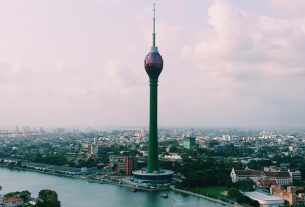Tanzanian authorities have deregistered a church run by ruling party lawmaker Josephat Gwajima, days after he publicly accused the government of committing human rights violations ahead of the country’s general elections in October.
Police on Tuesday cordoned off the Glory of Christ church in Dar es Salaam, following protests by hundreds of congregants who gathered in opposition to the shutdown.
In a formal notice, the Registrar of Societies cited “conduct unbecoming of a religious organization” in Gwajima’s recent sermons as grounds for deregistration.
During a Sunday service, Gwajima warned of increasing government repression, alleging arbitrary detentions and enforced disappearances. His remarks came shortly after a Kenyan and a Ugandan activist accused Tanzanian police of torture after their arrest ahead of high-profile court proceedings involving opposition leader Tundu Lissu, who faces treason charges.
Gwajima, elected to parliament in 2020 with the endorsement of late President John Magufuli, has grown into a prominent critic of President Samia Suluhu Hassan, who assumed office after Magufuli’s death and is now seeking re-election.
Though President Hassan initially projected a reformist stance—lifting a six-year ban on political rallies and calling for political reconciliation—her administration has increasingly been accused of cracking down on dissent. Several opposition leaders have been arrested in recent months.
In a recent address, Hassan warned foreign activists against interfering in the country’s legal affairs, specifically referencing those attending Lissu’s court hearings. Some activists arriving from Kenya were deported without explanation.
Human rights organizations, including Amnesty International, have urged the Tanzanian government to investigate reports of abuse and ensure due process for activists and opposition figures.
The closure of Gwajima’s church adds to growing concerns over shrinking civic and political space in Tanzania ahead of a contentious election season.



